Rhode Island DEM Donation Tree Program
The Rhode Island Department of Environmental Management (DEM) invites you to donate a tree or honor a loved one or commemorate a special event by donating a tree to one of our State Parks. Each tree serves as a living tribute while contributing to the reforestation and ecological health of Rhode Island’s beautiful parks.
Current Planting Schedule
Plantings are done twice a year, once in the spring and once in the fall. A minimum of 10 tree applications per park is required for planting. If this threshold is not met, your tree will be rolled over to the next planting season.
Applications are currently open for the spring 2026 planting.
How It Works
Steps for participating in the Tree Donation Program:
-
Read the Program Policies
Policy Overview
Program Fee: The cost of the Donation Tree Program for the 2026 season is $680 per tree. This fee covers the tree purchase, professional planting, and two years of maintenance. An optional plaque may be included for an additional fee.
Tree Planting: Trees are planted twice yearly—in spring and fall. The planting location within the park will be determined by DEM and the Tree Vendor for ecological suitability. Once your tree is planted, you'll receive a photograph and a map identifying its location. Donated trees will be recorded in a DEM-maintained database, and donors may choose to be included on a public-facing list of donation trees on this website.
Tree Maintenance: For the first two years, trees will be professionally maintained by the Tree Vendor and will be replaced if the tree fails to survive or is determined by DEM to be unhealthy due to lack of care or maintenance by the Tree Vendor. After two years, DEM will integrate the tree into their normal management of Park operations. If a tree dies after the two-year maintenance period, it is the donor's responsibility to replace it. At no time are DEM or the Tree Vendor responsible for damage due to nature, vandalism, or other uncontrollable events.
Restrictions: Donated trees at RI State Parks may only be planted and maintained through DEM’s Donation Tree Program. Maintenance shall be handled exclusively by DEM. Individuals shall not conduct maintenance on donated trees planted through the Donation Tree Program including but not limited to weeding, watering, cutting, pruning, or limb removal. Decorations or adornments, both on or under trees, are prohibited due to required maintenance, ecological health, and the potential for vandalism. Cremated remains (cremains) are prohibited and a violation of RI DEM Rules and Regulations (250-RICR-100-00-7.19).
Accessibility: DEM is committed to ensuring that all individuals, including those with disabilities, have equal access to this program.
-
Select from three iconic State Parks
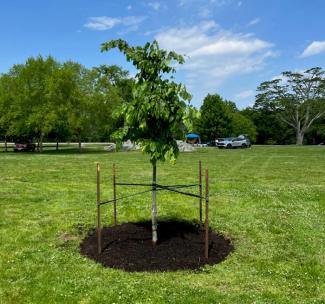
Donation tree at Goddard Memorial State Park Available State Park Locations:
- Colt State Park, Bristol
- Goddard Memorial State Park, Warwick
- Fort Adams State Park, Newport
Note: A minimum of 10 tree applications per park is required for planting. If this threshold is not met, your tree will be rolled over to the next planting season.
Donors may choose a preferred tree species, but preferred species are not guaranteed and will be determined at the discretion of DEM and the Tree Vendor depending on species diversity, location, and species availability.
Basswood (Tilia americana)
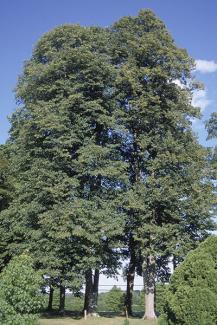
American basswood is a native deciduous tree. Mature heights range from 75 to 130 feet (23-40 m) with diameter ranges from 36 to 48 inches (91-122 cm). Willow Oak (Quercus phellos)
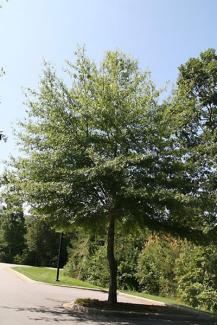
Often referred to as a “handsome tree,” this member of the mighty oak family has a stand-out feature: willow-like leaves. Japanese Tree Lilac (Syringa reticulata)
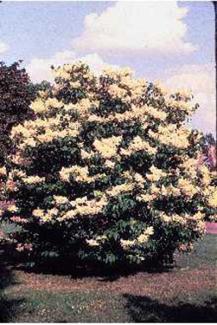
Japanese tree lilac is larger than the shrub lilacs and blooms a little later. It produces large clusters of small creamy-white, fragrant flowers. Black tupelo (Nyssa sylvatica)
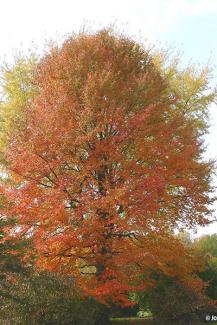
Displaying various hues of yellow, orange, bright red and purple—often on the same branch—its foliage is a stand-out of the autumn season. Basswood (Tilia americana)
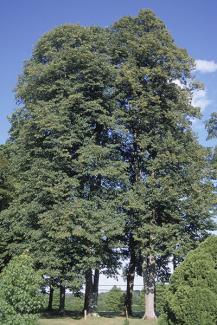
American basswood is a native deciduous tree. Mature heights range from 75 to 130 feet (23-40 m) with diameter ranges from 36 to 48 inches (91-122 cm). Photo credit. Common Hackberry (Celtis occidentalis)

These are tough trees that thrive in a broad span of temperatures. Its fruit is popular with winter birds and attracts many butterfly species. Credit. Ginkgo (Ginkgo biloba)
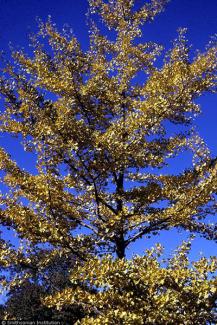
Best known for its unique, fan-shaped leaves that offer vibrant yellow foliage in the fall. It grows in pyramidal shape and is a great shade tree. Japanese Tree Lilac (Syringa reticulata)

Japanese tree lilac is larger than the shrub lilacs and blooms a little later. It produces large clusters of small creamy-white, fragrant flowers. Credit. Serviceberry (Amelanchier canadensis)
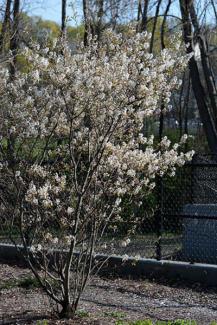
An all-season beauty, this tree has beautiful white clusters of blooms in spring, vivid red- and gold-hued foliage in fall, and plump red berries in summer. Credit. Basswood (Tilia americana)

American basswood is a native deciduous tree. Mature heights range from 75 to 130 feet (23-40 m) with diameter ranges from 36 to 48 inches (91-122 cm). Photo credit. Tulip tree (Liriodendron tulipifera)
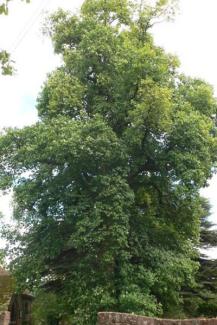
The tallest of North American hardwoods, growing to 100 feet or more, this tree maintains its beauty throughout the year. Credit. Black tupelo (Nyssa sylvatica)

Displaying various hues of yellow, orange, bright red and purple—often on the same branch—its foliage is a stand-out of the autumn season. Photo credit. Bald cypress (Taxodium distichum)
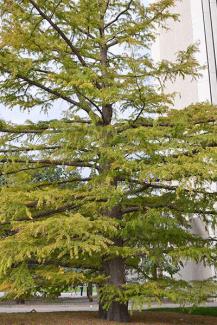
A classic of southern swamps, this tree adapts well to other locations. A beautiful specimen tree, reaching as high as 70 feet at maturity, it boasts pale green leaves that turn orange-red in the fall. Credit. -
Customize Your Tree
An optional plaque may be included for an additional fee. Plaques will have the name of the person for whom the tree was planted, the tree species, and the year of planting.
-
Submit the Online Application
-
Complete Payment
Following application submission, payment instructions will be sent to the email provided by the Donor. The Donor must submit payment for the donation tree to the Tree Vendor by the deadline provided in the email. The tree will not be purchased or planted if payment has not been received by the indicated deadline.
